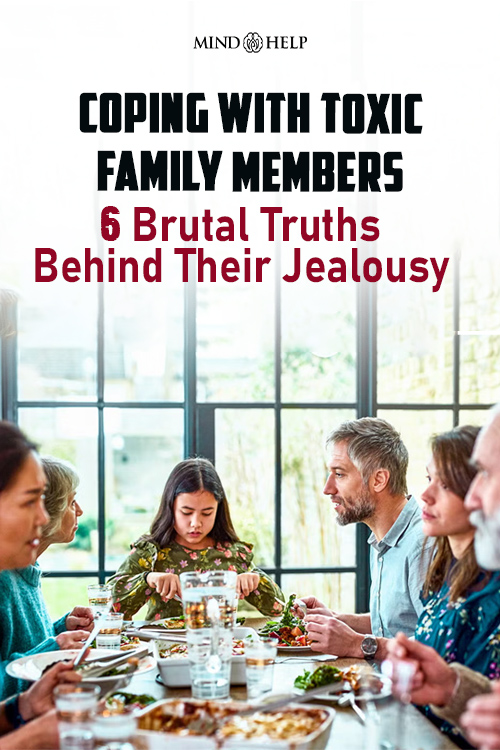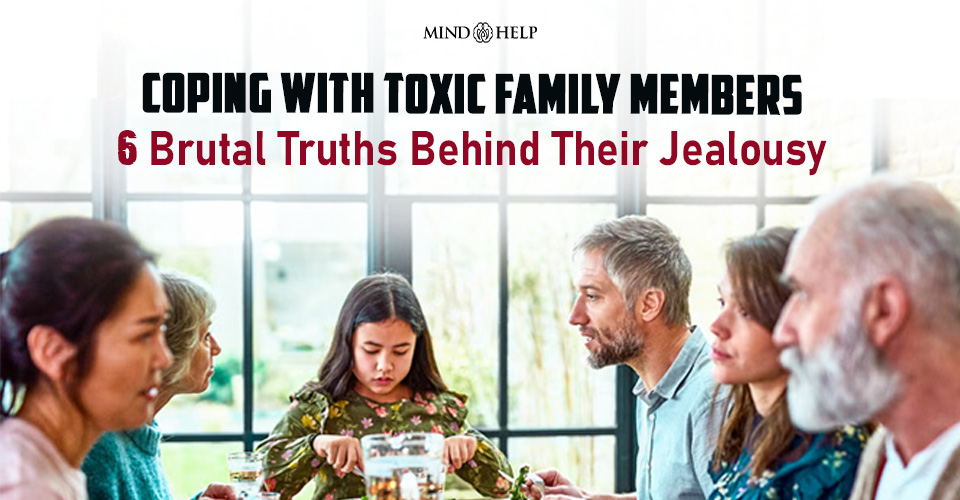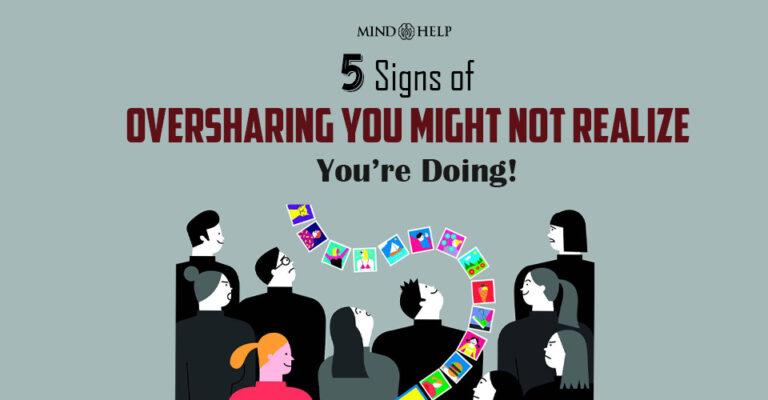Coping with toxic family members becomes even more challenging when Thanksgiving rolls around, because toxic family members tend to intensify the tension that’s already in the air.
The holiday glow often hides real Thanksgiving stress, be it old wounds, expectations, and the emotional weight of dealing with unhealthy family relationships.
For many people, joy turns into a trigger for others, making how to deal with jealous relatives a necessary survival skill.
Whether you are navigating subtle jabs, passive-aggressive comments, or considering cutting off toxic relatives altogether, Thanksgiving has a way of revealing what’s broken.
Read on to know more about why jealousy spikes during the holiday season, and how to protect your peace.
Related: How to Handle Family Stress When Thanksgiving Brings Out Everyone’s Worst
Why Some People Can’t Stand Seeing You Happy
The truth is painfully simple: sometimes your happiness reminds people of the parts of themselves they are avoiding. The holidays don’t magically dissolve people’s insecurities, rather they magnify them.
Here’s why some relatives can’t stand your joy:
1. Comparison mentality
Thanksgiving brings people together, but it also brings everyone’s life choices into the same room. Suddenly your success, stability, or emotional growth becomes a mirror they don’t want to look into.
They compare themselves to you, and feel like they have lost some imaginary race.
2. Low self-esteem
People with fragile self-worth often take your happiness personally. Your wins highlight their internal losses. Instead of celebrating you, toxic family members shrink, and then lash out in subtle ways.
3. Unresolved emotional wounds
Some people are walking around with old, unhealed emotional bruises – family neglect, favoritism, rejection, or unresolved trauma. Seeing you thriving feels like a reminder that they never got what they needed.
4. Competition within families
Let’s be honest: many families quietly keep score. Careers, relationships, money, kids, lifestyle; everything becomes a “who’s doing better” scoreboard. It’s toxic, but it’s real.

5. Sibling rivalry
Sibling rivalry doesn’t magically fade just because everyone has grown up; it simply evolves into quieter, more subtle forms.
Your achievements can stir up old childhood wounds, making your sibling feel like they are losing a competition that never officially ended. Even small wins can trigger comparisons they have been carrying since childhood.
6. Scarcity mindset (“If you are happy, I must be losing”)
People with a scarcity mindset see happiness as a limited pie; if you get a big slice, they fear there’s nothing left for them. So your joy feels like a personal loss instead of something to celebrate.
They emotionally equate your success with their failure, even when your lives have nothing to do with each other. It’s a distorted, fear-based way of viewing the world that turns your wins into their wounds.
This doesn’t excuse their behavior, however understanding it helps you stop personalizing it. Their jealousy is about them, not you.
7 Signs Someone Is Jealous of You at Thanksgiving
Here’s what Thanksgiving jealousy actually looks like in real life:
1. Backhanded compliments
“You look so nice… I didn’t expect that.”
“It must be luck that your job is going well.”
Backhanded compliments are the classic calling card of jealousy because they sound supportive on the surface but feel like a tiny emotional slap. Instead of celebrating you, the person slips in a subtle insult meant to shrink your confidence just a bit.
They might compliment your outfit, but add a surprise twist, or congratulate you on your success while hinting that you don’t really deserve it or got it easy. They make such comments so that you feel insulted and confused, not happy.
It’s praise with a sting.
2. Subtle jabs disguised as humor
You know you are dealing with jealous relatives, when they turn humor into weapon, so that they can put you down without being held responsible.
They will make jokes about your personal relationships, career, or even your personality under the guise of “just kidding.”
However, you will notice that their sharp, their timing intentional, and their motive unmistakable; their goal is to knock you down while pretending they are fooling around with you. But, if everyone’s laughing except you, it’s not humor.
It’s hostility hiding behind a smile.
3. Shifting the spotlight
For toxic family members, your joy is unbearable, so they immediately find ways to redirect the attention. Share good news, and suddenly they interrupt with a dramatic story or a crisis to steal the emotional spotlight.
They might even turn your accomplishment into an opportunity to talk about themselves. This isn’t random, it’s a subconscious attempt to re-establish control.
Your win threatens their sense of importance, so they scramble to reclaim center stage.
Related: Got Family Drama? Here’s How To Survive Family Gatherings This Thanksgiving
4. Passive-aggressive behavior
Jealousy rarely arrives loudly – it shows up in subtle, moody energy. Passive-aggressive behavior is their quiet protest, the emotional equivalent of slamming a door without making a sound. This is one of the major causes of Thanksgiving stress.
They may ignore you, respond with short answers, or use exaggerated sighs and eye rolls to communicate disapproval. These small gestures are meant to make you uncomfortable and unsure of what you did wrong.
They want you to feel their displeasure without them having to say a word.
5. Tension when you talk about your achievements
If your success triggers tension, watch the micro-expressions – the jaw tightening, the forced smile, the sudden distraction. Jealous people struggle to hide their discomfort when you are thriving.
They may cut conversations short, change the topic, or look physically pained when you share something positive. This reaction isn’t about you bragging, it’s about their internal comparison meter going into crisis mode.
Your joy shines a light on the parts of themselves they would rather not face.
6. Oversharing their misery to make you feel guilty
Some people dim your happiness by unloading their suffering the moment you share something good. They respond to your positive update with a tragedy, complaint, or emotional meltdown to shift the energy.
This creates a guilt dynamic where you feel bad for being happy. It’s an unconscious tactic rooted in insecurity – if they can make you emotionally shrink, they feel less inadequate.
It’s less about connection and more about controlling the emotional atmosphere.
7. Sudden “advice” that is actually criticism
“Oh, you are doing that? Are you sure it’s a good idea?”
Jealous people often disguise criticism as concern.
Criticism disguised as advice is one of the sneakiest signs of jealousy. Instead of congratulating you, they offer warnings, doubts, or “concerns” that chip away at your excitement.
It’s their way of positioning themselves as wiser or more grounded while subtly undermining your confidence. They pretend to guide you, but their words are meant to plant fear or hesitation.
If their advice leaves you feeling smaller instead of supported, it wasn’t guidance, it was envy in disguise.
If you recognize these signs of coping with toxic family members, then know that you are not imagining it; you are just really good at noticing the emotional undercurrents.

How To Deal With Jealous Relatives And Protect Your Mental Health
When you are dealing with unhealthy family relationships, jealousy, emotional manipulation, and passive-aggressive energy, protecting yourself becomes the real holiday tradition. Sometimes, cutting off toxic relatives is also okay.
Here’s how you do it without turning into the villain:
- Emotional boundaries: You don’t owe anyone emotional access to your life. Share less. Hold back. Protect your peace. This is one of the best ways when it comes to coping with toxic family members.
- Avoid over-sharing: Not every win, dream, or life change needs to be community property. Jealous people twist information, so, sometimes it’s safer to keep things private.
- Prepare self-regulation strategies: When things start to feel too much, take a few deep breaths. Maybe go for a walk outside. Or quick bathroom breaks. It helps a lot more than people think.
- Reframe their behavior (not your fault): How to deal with jealous relatives? Remember that this is about their insecurity, not your reality. You are not at all responsible for managing or their emotions.
- Lean into supportive people: Every family has at least one person who is genuinely happy for you. Sit near them. Talk to them. They are your emotional safe space, and they can aid you in dealing with Thanksgiving stress.
- Neutral responses: Coping with toxic family members? You don’t need to clap back. You also don’t need to engage. Say things like, “Oh, interesting”, “I hear you“, “That’s your perspective.” These defuse tension instantly.
- Compassion without self-sacrifice: You can understand their pain without carrying it. Empathy shouldn’t require self-abandonment at the hands of toxic family members.
- Graceful exit strategies: If you are dealing with unhealthy family relationships, then try these escape routes out. Bathroom break? Help in the kitchen? Sudden phone call? Go for it!
Always, remember that cutting off toxic relatives is sometimes self-care. If the pattern repeats every year and the emotional damage is real, distance isn’t dramatic, it’s necessary.
Related: 25 Interesting Thanksgiving Traditions To Try Out With Your Family And Friends
Conclusion
Thanksgiving stress is real, and it’s painful. But the truth is simple: your joy is not a threat. Your happiness doesn’t hurt anyone; it only exposes what they haven’t healed.
So this Thanksgiving, protect your peace fiercely. Set boundaries boldly. Practice radical self-care. Surround yourself with the people who celebrate you, not silently compete with you.
Your happiness deserves space at the table, even if some people can’t handle it. And if you feel that cutting off toxic relatives will do a whole lot of good for your mental and emotional health, do it without a second thought.
Do you find yourself coping with toxic family members often? How to deal with jealous relatives, according to you? Let us know your thoughts in the comments down below!








